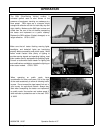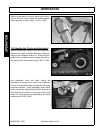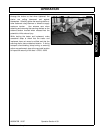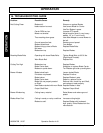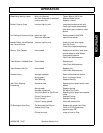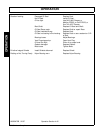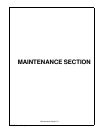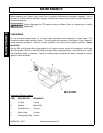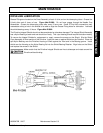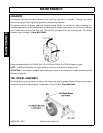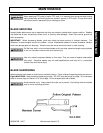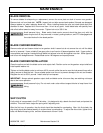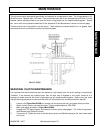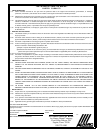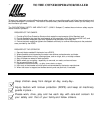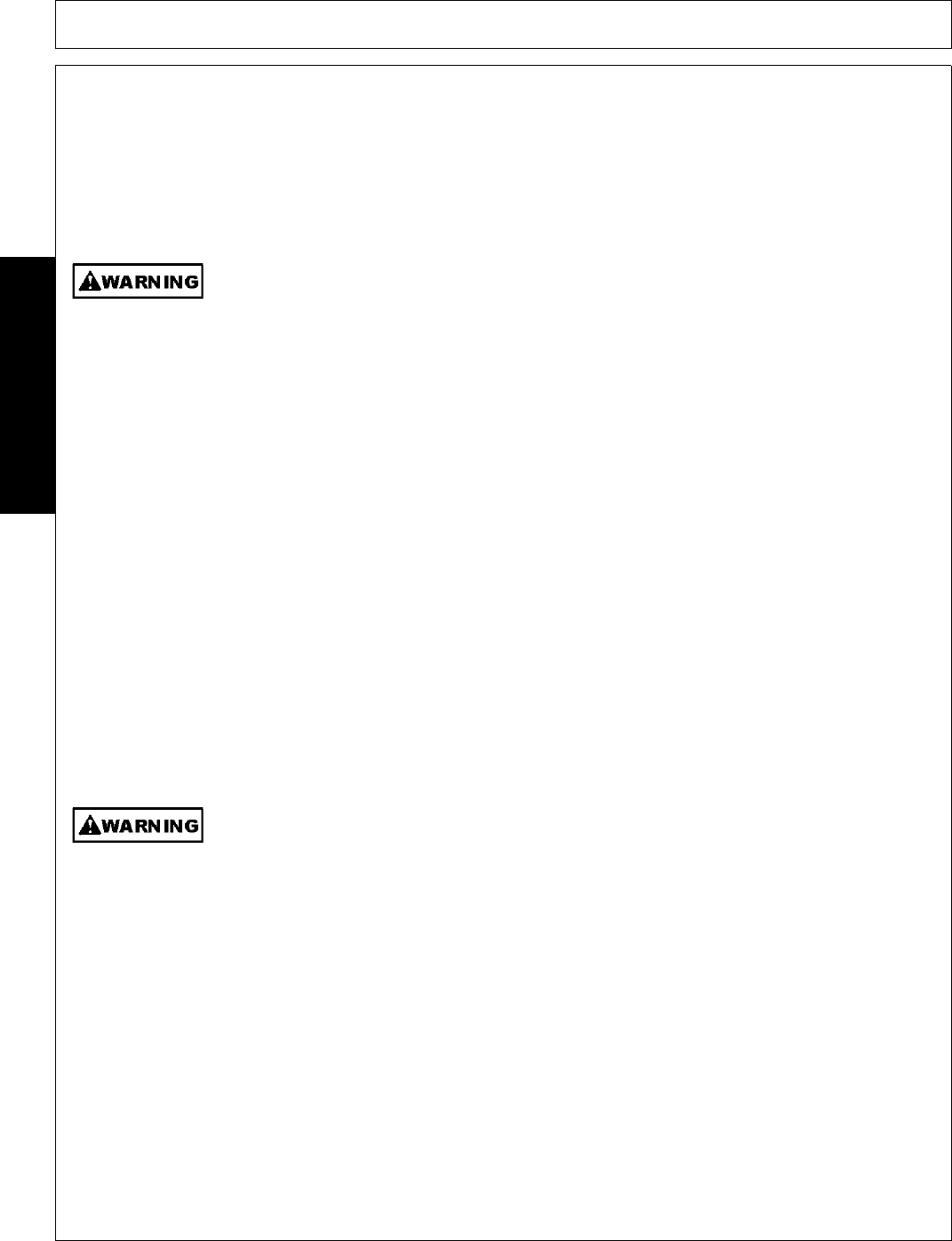
MAINTENANCE
A60B/A72B 02/07 Maintenance Section 5-6
©2007 Alamo Group Inc.
MAINTENANCE
BLADE REMOVAL
To remove blades for sharpening or replacement, remove the cover plate on deck of mower near gearbox.
Remove lock nut from blade bolt. NOTE: Inspect lock nut after removal and replace if threads are damaged.
Always replace nut when replacing blade bolt. When installing blades be sure and check blade bolt pivot
diameter for wear. Replace bolt if worn more than 1/4 inch at any point. Install blade bolts with partially worn
side of bolt either toward or away from center. Tighten lock nut to 350 ft. lbs.
Avoid personal injury. Blade and/or blade carrier removal should be done only with the
tractor engine shut off, key removed, in neutral, parking brake on, and PTO disengaged and
the cutter blocked in the raised position.
BLADE CARRIER REMOVAL
Remove cotter pin and loosen slotted nut on gearbox shaft. Loosen but do not remove the nut until the blade
carrier is loosened. Use a suitable 2 jaw gear puller to pull carrier off tapered gearbox shaft. If gear puller is
not available use long bar inserted through blade bolt access hole with end against rotor bar. Strike opposite
end of bar with sledge hammer. Rotate blade carrier 180 degrees and repeat process.
BLADE CARRIER INSTALLATION
Clean the splines on both the blade carrier and output shaft. Position carrier on the gearbox output shaft and
install special washer nut.
Tighten nut holding blade carrier to minimum 450 ft. pounds, strike the carrier near the hub several times with a
heavy hammer to seat the hub. Use a suitable spacer over the nut to prevent damage to the nut and threads.
Retighten the nut to 450 ft. pounds. Install cotter pin and spread.
IMPORTANT: Always recheck gearbox output shaft and blade carrier to be sure they are retaining nut torque
after a few hours operation.
Avoid personal injury. Do not work under cutter without support blocks to keep frame from
falling.
SLIP CLUTCH
A slip clutch is incorporated in the PTO driveline. It is designed to slip, absorb the shock load, and protect the
driveline. This clutch has a single disc spring with 6 adjusting nuts.
After the first hour of operation, the slip clutch should be checked for overheating. After this first check, the
slip clutch should be checked weekly or anytime there is overheating. To adjust the disc clutch, tighten the 6
bolts until Belleville spring is flat and then loosen each of them 2 turns.



